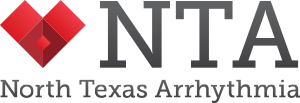Cardiac Resynchronization Therapy (CRT) or biventricular pacing is a form of therapy for congestive heart failure caused by dilated cardiomyopathy. CRT is incorporated in a medical device, the pacemaker or the ICD, and is used to resynchronize the contractions of the heart’s lower chambers or the ventricles by sending small electrical impulses to the heart muscle, which can help the heart pump blood throughout the body more efficiently.
Patients with congestive heart failure have ventricles that do not pump together or become out of sync causing the heart to not be able to pump enough blood to the body. This eventually leads to an increase in heart failure symptoms such as shortness of breath, swelling in the ankles or legs, weight gain, fatigue and rapid or irregular heartbeats. CRT can help to improve these symptoms by making the ventricles pump together.
You may be a candidate for CRT but must have certain criterias such as heart failure symptoms that are limiting your ability to function normally, currently on certain medications for heart failure, and other factors that you should talk to your doctor about.
